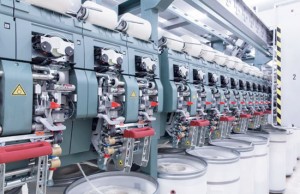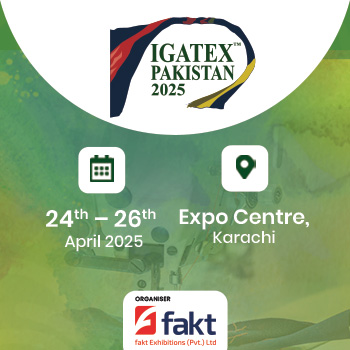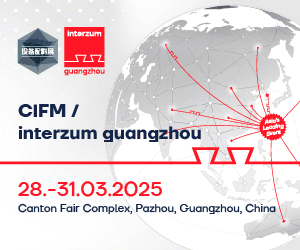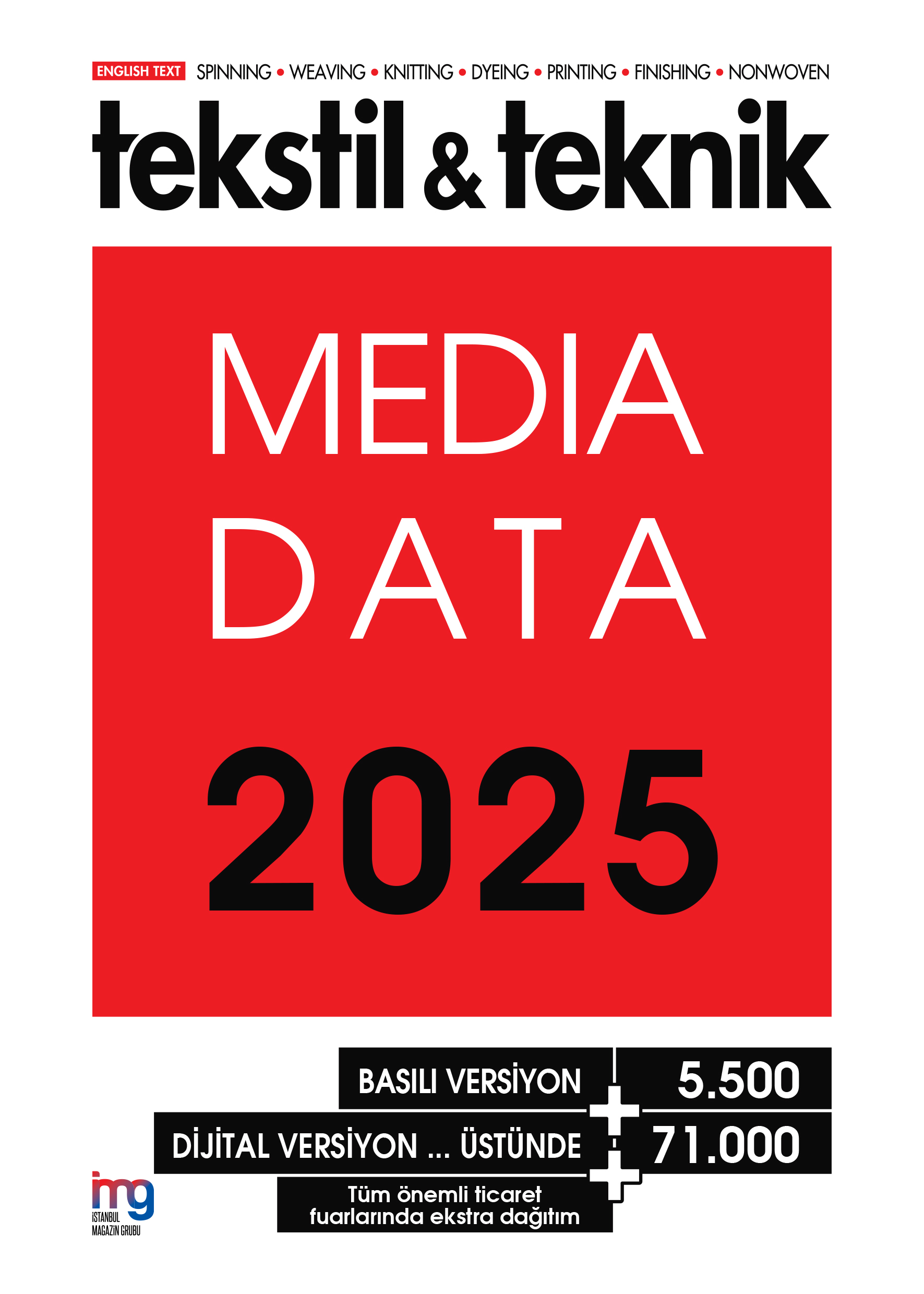 Rieter recorded a pleasing trend in business in the 2013 financial year. The improvement in its market position enabled the company to post significant growth in all key figures – order intake, sales, EBIT and net profit – compared with the previous year.
Rieter recorded a pleasing trend in business in the 2013 financial year. The improvement in its market position enabled the company to post significant growth in all key figures – order intake, sales, EBIT and net profit – compared with the previous year.
New orders of 1 259.4 million CHF were 50% higher. Rieter generated net profits of 37.4 million CHF in 2013, equivalent to 3.6% of sales. This figure is 46% higher than the previous year’s outcome. The Board of Directors will propose that a dividend of 3.50 CHF be paid for the 2013 financial year out of the reserve from capital contributions. The investment program initiated for the years 2012 and 2013 in order to generate further growth was largely completed at year-end. It was already having a positive impact on the trend of business.
After a subdued start to the year, the market for short-staple fiber machinery and components gained momentum in the course of 2013. Spinning mills’ margins continued to develop favorably, and this stimulated customers’ willingness to invest. This positive trend was broad-based in regional terms and apparent in a large number of national markets. Following a strong initial six months, demand stabilized in the second half of the year, but remained at a plea-singly high level. Demand for the company’s offering, expanded by major product launches, has been very strong in both traditional and new markets. With its product range centering on specific markets and its new plants, the company is ideally positioned with a worldwide operating network. Spinning mills in all major markets are increasingly placing their confidence in machinery and components which enable a high degree of automation to be achieved in conjunction with higher productivity and yarn quality with lower energy consumption. As the sole global supplier of integrated systems for all four spinning processes, Rieter can optimize the entire spinning operation in line with customers’ specific needs. This is a crucial and lasting competitive advantage.
Orders received and sales
In the year under review, new orders received by Rieter increased by 50% to 1 259.4 million CHF. After developing especially vigorously in the first half of 2013, order intake slowed slightly in the second six months, but still remained above the long-term average. This trend was especially evident in Turkey, where demand had been particularly strong with the support of government development schemes. Rieter booked substantial new orders in China, especially in the first six months, due to the further expansion of its local presence. However, investments by Chinese spinning mills waned toward year-end due to large raw material inventories and growing difficulties with financing investment projects. Healthy demand for Rieter products nevertheless continued throughout the year in a number of Asian countries, such as Pakistan, Uzbekistan, South Korea, Bangladesh, Indonesia and Vietnam. Spinning mills in the US are renewing capacity as the industry benefits from a competitive cost structure. Orders received in India rose in the second half, albeit still at a modest level. Rieter posted an increase in order intake at both Business Groups, with the striking momentum in the first six months being attributable especially to orders for integrated systems from Spun Yarn Systems.
Spun Yarn Systems Business Group
The Spun Yarn Systems Business Group (machinery business) posted order intake of 1 084.3 million CHF, an increase of 56 % compared to 2012. The strongest growth was recorded in Turkey and the US, followed by other Asian countries such as Pakistan, Uzbekistan, South Korea, Vietnam and Bangladesh, where demand was sustained at a high level. Orders received in India revived in the second half of the year, but still remained below the previous year’s level overall. Following an encouraging start in the first six months, demand declined in China in the second half. Customers were unsettled by large inventories of cotton fiber, lower demand for yarns produced from viscose fibers and financing problems. Spun Yarn Systems reported sales of 857.8 million CHF in 2013, an increase of 18 % compared with the previous year. All regions contributed to this; only in Europe were sales slightly lower. In this context Spun Yarn Systems posted an 19 % increase in sales in the second half compared with the first six months, and output increased considerably, especially toward year-end. This positive trend resulted mainly from higher volumes in the second half, a more favorable product mix with margins above the average of current orders in hand and improved market penetration in the spare parts business. The savings achieved as a result of the reduced head count also had its greatest impact at Spun Yarn Systems.
Premium Textile Components Business Group
Orders received by the Premium Textile Components Business Group in 2013 increased by 21% to 175.1 million CHF. The highest growth rate was recorded in China, where Premium Textile Components had reinforced its local presence. The business group did good business both with spinning mills and with local textile machinery manufacturers. Orders placed in Turkey continued their positive trend. In India, Premium Textile Components maintained the level of order intake compared with the previous year despite the steep devaluation of the Indian rupee. Demand from other Asian countries was slightly higher. Demand was strong in the year under review for all four Premium Textile Components’ brands: Bräcker, Graf, Novibra and Suessen. Premium Textile Components’ sales to third parties of 177.5 million CHF in the year under review were 10% higher. The business group recorded a substantial increase in China, and sales also revived in India; increasing numbers of EliTe conversion kits were delivered by Suessen, especially in the second half. Intercompany sales rose even more strongly than those to third parties, which in turn reflects the good trend of business at Spun Yarn Systems. As a result segment sales of 259.1 million CHF were 12% higher than a year earlier. Flexible manufacturing at all four units of Premium Textile Components contributed to sales momentum.
Expansion in Asia
The planned expansion of facilities in China and India has been completed. This means that Rieter is considerably better positioned in these large markets and at the same time has made state-of-the-art capacity available which assumes a core function in the company’s global manufacturing network.
Innovation
Rieter has expanded its offerings with important products for new markets. The new version of the J 20 airjet spinning machine was released for serial production at the end of 2013. Rieter can thus proceed with the selective market launch of this product. The airjet spinning process enables high productivity and fiber utilization to be achieved with good yarn quality.
Process improvements
The goal of operational excellence is being pursued in all Rieter facilities. Process improvements have resulted in a perceptible increase in competitiveness in manufacturing operations in particular. As already announced earlier, new IT-assisted global business processes will be introduced with a six-month delay, as of January 2014.
Outlook
With broadly based business worldwide, Rieter has seen a good demand for textile machinery and components in the first two months of 2014. Demand depends among other factors on the development of yarn and raw materials prices, currency exchange rates, financing costs, and global consumer sentiment. Based on the current order backlog – already reaching into 2015 – full year sales for 2014 are expected to show high single-digit growth compared to 2013 with a stronger second semester. Operational profitability (EBIT) in 2014 will be positively impacted by volume growth, whereas additional costs of 10 million CHF for conclusions of the IT-supported processes project, low airjet capacity utilization and lower order backlog margins than in the second semester 2013 are expected to have an adverse impact. Rieter expects for the year 2014 a higher operating result (EBIT) than in 2013. Rieter will put additional focus in 2014 on its customers to ensure on-time delivery of order backlog and a profitable future order intake. Further priorities will be the completion of the final investment program activities and leveraging the new assets from the investment program 2012/2013.









